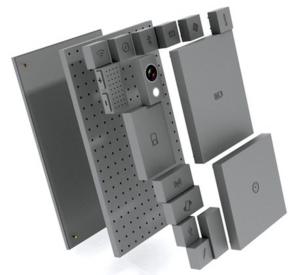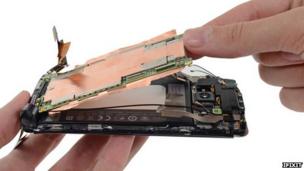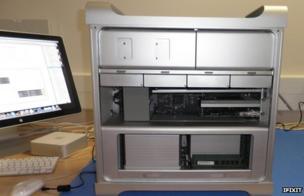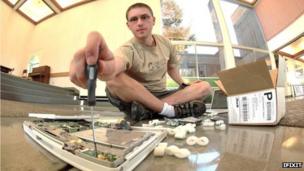Smartphone news is a new and exciting blog, where we have the very latest Smartphone news from around the world.
Monday 28 October 2013
Lego Smartphone
LG unveils G Flex curved smartphone
LG Electronics unveils a curved smartphone called G Flex, to rival Samsung's Galaxy Round
Monday 21 October 2013
BBM Apple And Android
BBM Blackberry Messenger Is Here
We're holding your spot, this is what Blackberry will say to you all when you download the bbm app from the Apple i store. hmmm
Blackberry Messenger is here but you all might have to pay?
BlackBerry is finally pressing play on its roll out of BBM for iOS and Android, though it won't be the app free-for-all some may have hoped for.
Posted www.anymobilesmartphone.co.uk
Sunday 20 October 2013
HTC eyes 50% share of Taiwan phablet market
Saturday 19 October 2013
Worlds first 2k Smartphone Large Display Screen
Tuesday 15 October 2013
Sony Expands Further a-Field
Monday 14 October 2013
HTC One Max fingerprint phablet unveiled early
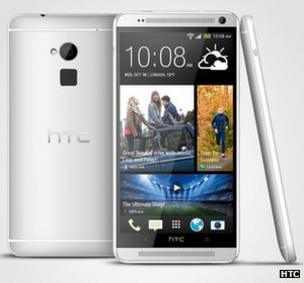
HTC has announced its latest handset a day earlier than planned after its details leaked on to the net.
The Android-powered One Max which includes a fingerprint scanner and a 5.9in (15cm) screen - had been scheduled to be unveiled at a press conference in China on Tuesday.
The device is a larger "phablet-sized" version of its flagship model.
HTC's original One was well-reviewed but has been outsold by Samsung's Galaxy S4.
That helped cause HTC to post its first ever quarterly loss earlier this month.
The Taiwanese firm announced a deficit of just under 3bn Taiwan dollars ($100m; £62m) for its July-to-September quarter.
By contrast Samsung Electronics has forecast record profits for the same period.
HTC said it decided to abandon the restrictions it had placed on information about the One Max after a member of the media broke a Tuesday embargo placed on its specifications. A spokeswoman for the firm said she was unable to name the publication responsible.
Fingerprint security
The HTC One Max's inclusion of a fingerprint scanner makes it set to be the first Android handset to go on sale with the facility in the UK since Apple's launch of the iPhone 5S in September, which included a similar component.
However, both were preceded by Motorola's Atrix handset, released in 2011. It also included a scanner on its rear, but struggled to take accurate readings, leading the firm to ditch the feature in later models.
More recently, South Korea's Pantech began selling a handset with the function in its home market in August. It has also announced plans for a fingerprint scanner-equipped phablet - the Vega Note LTE-A - but has yet to declare its launch date.
HTC said the One Max would begin its roll-out later this month.
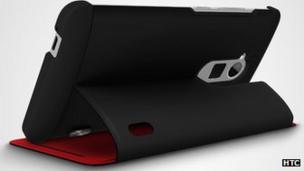
"The fingerprint scanner allows users to lock or unlock the screen and quickly launch up to three favourite applications by assigning an individual finger to each," HTC said in a statement. it had designed a "walled off" enclave on its custom-designed A7 processor to store iPhone owners' fingerprint data to ensure the biometric information could not "escape".
By contrast the new HTC handset uses an off-the-shelf Qualcomm Snapdragon 600 processor, but the firm offered the following assurance to consumers:
"The fingerprint data is encrypted and stored in local memory and can't be readily accessed or copied. The fingerprint data cannot be easily converted into any other form or used by a third party."
However, one security expert suggested the firm still needed to provide more detail.
"The obvious question is: What kind of encryption is the company using?" said Alan Woodward, chief technology officer at the consultancy Charteris.
"The bottom line is that whenever your biometric data is being stored for security purposes it could potentially be misused.
"So, consumers will always want to be sure it is stored in such a way that if you lose the phone, it is hacked into or there's some other kind of unauthorised access, that it can't be readily obtained."
Marketing problem
The new mobile expands the HTC One family following the launch of a "mini" 4.3in-screened handset in July.
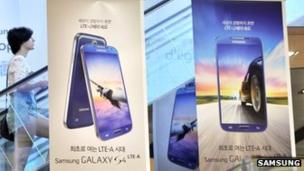
The original HTC One - which has a 4.7in screen - obtained a higher review score than Samsung's rival S4 on The Verge and Techradar news sites and recently beat its competitor to be named T3 magazine's gadget of the year.
However, HTC has repeatedly blamed marketing problems for its failure to match its South Korean rival's sales.
In August it employed the Hollywood actor Robert Downey Jr to head a new campaign, however its share price remains about 90% below its 2011 high.
"If you look at Samsung Electronics' financials, in the June quarter it spent $2.1bn on marketing - most of which went on mobile phones - that's more than all HTC's revenue for the same period by quite a margin," said Benedict Evans, from the media and tech advisory firm Enders Analysis.
"HTC does have a marketing problem - but it's not the creative part that's the issue, it's the scale.
"It's also worth bearing in mind that when you talk about Samsung's marketing spend over half of the sum is below the line: sales commissions mostly. And this isn't just an HTC-specific problem - it's a problem that applies to LG, Sony, Motorola and others as well."
Samsung's next earning figures are due to be released on 25 October.
If you would like to buy this Smartphone, please visit www.anymobilesmartphone.co.uk
Problems with the new Apple iPhone 5S. Phone 5S iOS 7 shows 80s Windows 'blue screen of death' error when phone crashes -
Sunday 13 October 2013
Asus to launch smartphones and Chromebook next year
Taiwanese firm Asus will relaunch its standalone smartphones again next year, a top official said.
"We are working on the design and the user interface and most probably we will launch it next year,"
Asus has launched PadFone series which has a smartphone and a tablet and when the smartphone is inserted into the tablet, it gets activated. The tablet alone is a dead piece with no processing power. He said Apple and Samsung are the clear winners now in the smartphone market. Two years ago it was
"Nobody knows who will be the winner in the next two to three years, it could be Asus if we have the right strategy," he said.
"We will be launching
Saturday 12 October 2013
Vodafone Customer Services Is Terrible . Vodafone System Faults.
Friday 11 October 2013
Future Smartphone Credit Cards
Thursday 10 October 2013
Future Smartphones
It's the year 2020 and, if you currently get angry at those who drive and talk on their cell phones, just wait until you deal with distracted hoverboard drivers. Kidding, of course. But as wrong as predictions have been for flying cars and the like, there are things that we can predict with a certain sense of accuracy. For example, one thing that's fairly sure to happen is the saturation of the smartphone market in the U.S.
What will this smartphone market in the year 2020 look like? What can Apple and other device makers expect?
Nary a feature phone in sight
Horace Dediu of Asymco plotted out the expectations for the smartphone industry. By 2020, Dediu estimates 270 million U.S. smartphone users, which, when converting to devices, does not include the fact that many have more than one smartphone, or have a company-issued phone. Adding those factors in, Dediu arrives at about 300 million smartphones in the U.S. in 2020 and, with purchases of a new phone averaging about every two years, a market of 150 million new smartphones annually.
Given these numbers, what would smartphone makers expect to sell in 2020 with their current market share?
Company
U.S. Marketshare
Hypothetical 2020 U.S. Unit Sales (millions)
Apple
40%
60
Samsung
25%
37.5
HTC
9%
13.5
Motorola
9%
13.5
LG
7%
10.5
Blackberry
3%
4.5
Source: Nielson, and author's calculations.
The issue with such an extrapolation, however, is that device makers have proven that they can drop market share incredibly fast. Seven years ago, Apple had no market share, Microsoft had 36%, and Blackberry had 31%. Seven years in the future, there could very likely be a different hierarchy of names on this list.
For example, HTC recently announced its first quarterly loss since going public in 2002. As Deidu notes, when a handset maker posts a losing quarter, it's incredibly difficult to resurrect momentum, as Blackberry, Nokia , Motorola, and Sony Ericsson have demonstrated in the past. These firms all ended up sold, merged, or they withdrew from the market, and at an increasing speed once they hit trouble.
However, while HTC may eventually bow out, there is a trend that fewer users are switching platforms, and when they do, they switch to Apple. While 4% of iPhone users expect to switch to Android, 12% of Android users expect to switch to an iPhone. This dynamic could lead to Apple remaining on top, even seven years in the future, and smaller competitors fighting among themselves in the lower ranks.
Potential disruptors
Apple will have to put up with hefty competition from companies that can afford to battle for years: Microsoft and Amazon . Microsoft is not afraid to lose money in a segment for years, as its online division demonstrates, with at least $7.5 billion in losses over the past three years, not including a $6 billion write down in goodwill. Microsoft has committed itself to an extended presence in mobile with its $7 billion purchase of Nokia's device business. And, although losses may mount, its enterprise profits can easily fund years of failure.
Amazon is the dark horse of the mobile industry's future, a frightening prospect for both Samsung and Apple. Amazon recently denied rumors of an upcoming smartphone release, which said that a value device could come late this year, and a more advanced device released in 2014. Amazon has no regard for margins, whether in eBooks or traditional products, as the company's decisions seem centered around the idea that the customer needs to be overjoyed with its products and services. If the company can release a phone that competes on features, with an incredible price tag, it could easily grab share in the always tumultuous smartphone market.
Posted by www.anymobilesmartphone.co.uk
BLACKBERRY - The future belongs to software
As sales of its smartphones declined, nearly 50% of the company's earnings, in its most recent quarter, came from its Services division.
BlackBerry caters to these businesses through its BlackBerry Enterprise Server 10 hardware that companies install and maintain.
However, hardware of any sort may be an untenable solution for the company to move ahead.
And so at Blackberry, the future if the company has got any luck, is going to be in software for the enterprise.
Wednesday 9 October 2013
Samsung Curved Smartphone
Sunday 6 October 2013
Blackberry may have a buyer for the company?
Blackberry the Smartphone maker could be taken over with-in months of this post.
Struggling smartphone maker BlackBerry is in touch with Google, Samsung, Intel, and other tech heavyweights about a possible buyout, according to a Reuters report.
The news agency cites several unnamed sources "close to the matter" in the Canadian company "has asked for preliminary expressions of interest from potential strategic buyers" by early next week. Those contacted include Cisco, Google, Intel, LG, Samsung, and SAP, Reuters said, adding that those companies declined to comment (or, in Samsung's case, hadn't yet replied).
Posted by www.anymobilesmartphone.co.uk
Saturday 5 October 2013
HTC quarterly sales down
The launch of new products has so far failed to trigger a recovery for HTC
Taiwanese mobile phone maker HTC has reported its first ever loss as it continues to lose ground to rivals.
It made a net loss of 2.97bn Taiwan dollars ($100m; £62m) in the three months to September.
Its numbers are in sharp contrast with rival Samsung, which has forecast record profit for the same period.
HTC was one of the early market leaders in Android smartphones, but has lost market share to rivals such as Samsung and Apple in recent years.
It has launched new products, such as the HTC One, in an attempt to regain some of the lost ground.
While the firm has claimed that the response to those products has been encouraging, analysts have warned that prospects of a recovery continue to remain weak.
Laura Chen, an analyst at BNP Paribas, said that there were "no signs" of a recovery anytime soon.
The company's shares have fallen more than 50% over the past 12 months amid concerns over its future growth.
Posted by www.anymobilesmartphone.co.uk
Friday 4 October 2013
3D Smartphone
It is rumoured that Amazon could release a 3 D smartphone in the very near future.
So, two smartphones could arrive from Amazon sometime in the future.
But what’s very interesting is that one of the devices, codenamed “Smith”, is said to be coming with a 3D user interface.
The handset will apparently utilize four front-facing cameras then it will track a user’s head in order to position the phone’s 3D effects.
The second phone will be similar to the “Smith” smartphone but having no 3D effects. There are no hints regarding the specs of the devices, but the phones are said to be capable of identifying objects in real life.
For more info on this phone when it is available please see website below.
Posted by www.anymobilesmartphone.co.uk
Wednesday 2 October 2013
HTC out ranks the Apple iPhone
The HTC One topped the rankings published on Sept. 24 by Pocket-lint, which said the phone is "a triumph of design and sumptuous to hold" and that its 4.7-inch full-HD display delivers "some of the best quality visuals you'll find on a smartphone."
"HTC has a history of making good phones, so the HTC One doesn't come as a surprise to us. It's a fantastic Android smartphone and is well worthy of your consideration if you're in the market for a premium device," the website commented.
The iPhone 5S, launched on Sept. 10 in the United States with a fingerprint scanner and a refreshed operating system, ranked second on the list, followed by the LG G2, Samsung Galaxy S4 and Google Nexus 4.
In the sixth to 10th places were the Sony Xperia Z, Samsung Galaxy Note 2, Samsung Galaxy S4 Active, Sony Xperia Z1 and Apple iPhone 5C, according to the rankings.
Despite the critical acclaim for the HTC One, HTC's fundamentals are getting worse without any positive catalysts to spark a rebound in the highly competitive smartphone market, said Robert Cheng, a Taipei-based analyst at Bank of America Merrill Lynch.
"We believe some exits in HTC's R&D team will impact its new model launch time table in 2014. The big idle capacity also prolongs the operating breakeven timetable," he wrote in a Sept. 27 note to clients.
Cheng said HTC only had a 50 percent utilization rate of its current capacity.
HTC warned in late July that it was likely to post its first net quarterly loss in history in the third quarter because of high inventory in its distribution channels, its higher cost structure and a lack of economies of scale.
The company has forecast its third-quarter revenue at between NT$50 billion (US$1.69 billion) and NT$60 billion, down 15-30 percent from NT$70.7 billion in the second quarter.
HTC shares closed up 0.76 percent at NT$133 in trading in Taipei on Tuesday.
Posted by www.anymobilesmartphone.co.uk
Tuesday 1 October 2013
New Samsung Galaxy S5
Samsung Galaxy S5 only months away, lets hope they have better features than the iPhone.
Samsung Galaxy S5 is still but a concept, especially when Samsung’s effort seem to be focused on its phablet and tablet devices and the Android 4.3 update is just about to rollout for the Samsung Galaxy S4. But known for its aggressive push in marketing and forward thinking, it will not be surprising that the future flagship for Asia’s largest technology company is already in the works.
Based on recent report from Valuewalk, the Samsung Galaxy S5 is months away from a release and will possibly unveil the new device on between February 24-27 during the Mobile World Congress. One of the notable handsets the company unveiled during the MWC was the Samsung Galaxy S2 Plus in 2012.
According to the International Business Times, Samsung will offer the Samsung Galaxy S5 in both Android and Tizen platforms and that it will have an enhanced camera, fused with optical image stabilization feature and will have an exterior made of aluminum and magnesium.
Posted by www.anymobilesmartphone.co.uk

